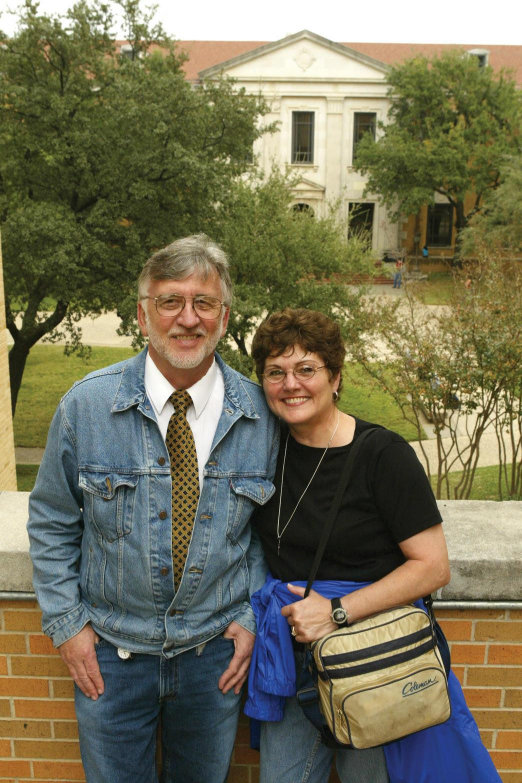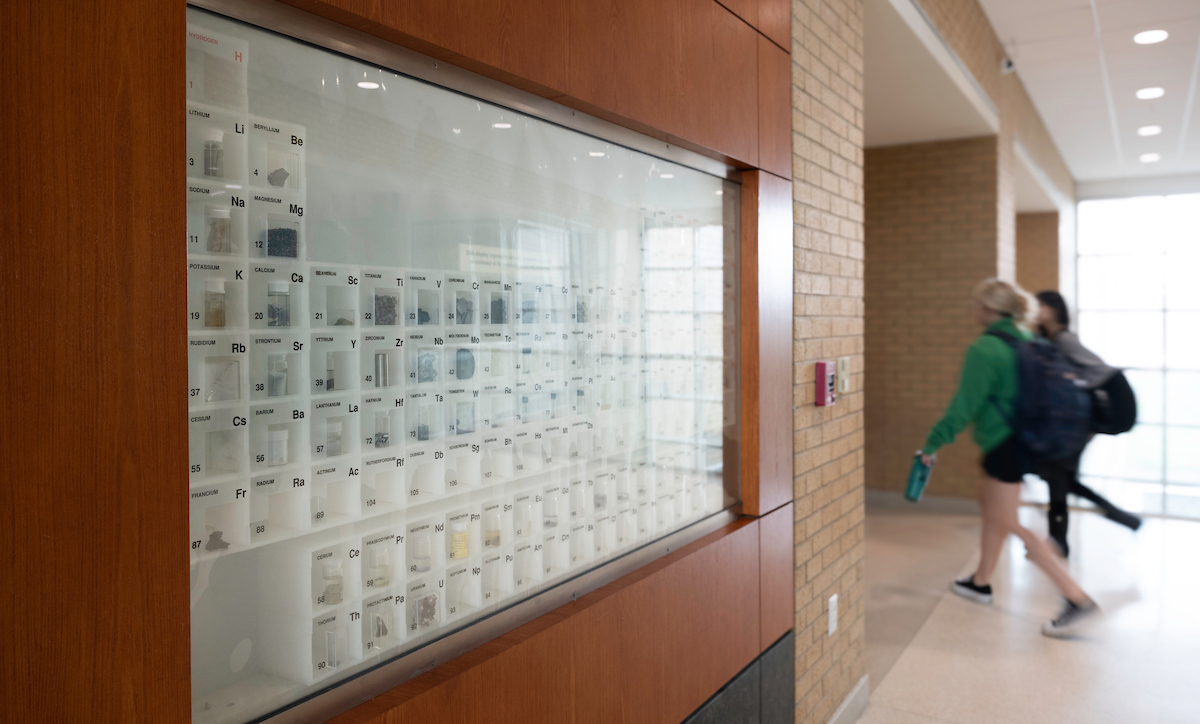
DENTON (UNT), Texas — A project that took 12 years to complete by University of North Texas College of Science Emeritus Professor James Marshall and his late wife, Virginia “Jenny” Marshall, is now getting international recognition.
The Marshalls earned the HIST Award from the American Chemical Society’s Division of the History of Chemistry for their “Rediscovery of the Chemical Elements” research project. The award is international in scope and recognizes an outstanding career of contributing to the history of chemistry.
“The goal was to actually visit all the places where the elements have been discovered,” said James Marshall, who served on faculty at UNT from 1967 through his retirement in 2017. “It just hadn’t been done before.”
The two traveled all over the world to visit the locations where elements on the periodic table were originally discovered totaling 28 countries. They would document the journey in a series of articles and give more insight into the discovery of each element. The massive undertaking originally began as a vacation idea.
“I remember Jenny asked where I wanted to go on our honeymoon,” Marshall said. “Well, there was a book called The Discovery of the Elements by Mary Elvira Weeks. It’s from the 1930s, and she wrote about all the places where elements had been discovered. And I said ‘let’s do that.’”
Despite most elements being well known with widespread use, some of the original labs where they were discovered were hard to track down. The Marshalls would find themselves playing the part of detectives in some cases.
“Sometimes it wasn’t obvious. For example, we had to go to the library at the Martin Luther University Halle-Wittenberg in Germany to find an article on radon,” Marshall said. “But it had the wrong date on it, and we had to correct the library. Remember some of these articles were from the early 1900s.”
One of Marshall’s favorite locations the couple visited involved such detective work and a little luck.
“It was a great moment in Berlin. We had been searching for a lab all day with no luck, so we stopped to eat at a café,” Marshall said. “We’re sitting there and Jenny suddenly goes ‘Jim, there’s a plaque!’ So, I told the waiter we’d be right and back there it was. A little plaque for the lab where uranium was discovered.”
After their trips, the Marshalls wrote articles on the elements and their history. The papers were originally published in The Hexagon, the official journal of the chemical fraternity Alpha Chi Sigma. Eventually, they had written more than 50 articles. It was Jenny Marshall who came up with what to do next.
“She said ‘we need to put this on a DVD’. I had no idea how to do that, but she went upstairs and came down two minutes later and had everything designed in Dreamweaver,” Marshall said.
The entire project is available online hosted through the Department of Chemistry. The site includes the Hexagon articles, information on each element, more than 5,000 photos from their trips and maps highlighting cities they visited.

“It was just fun,” Marshall said. “We never came back trying to impress people with what we did but to show them just how fun it is to discovery chemistry and to appreciate that science is a magnificent discipline.”
During their trips, the Marshalls collected samples of each natural element that can be safely contained to create a living periodic table in their home. Pieces of that collection now make up the living periodic table which is on display in the UNT Chemistry building.
“We’re very proud that Jim and Jenny’s hard work is being recognized,” College of Science Dean John Quintanilla said. “You could tell the project was a true labor of love, and we’re honored to display a piece of it on campus for everyone to see.”
Marshall will officially receive the award in the fall at a symposium held in the couple’s honor where he also will give an award address. While the award is for both of them, Marshall said most of the credit should go to Jenny.
“If it weren’t for her this project would not have gone anywhere,” Marshall said. “She was the computer genius behind it, the motivation behind it, and the charm behind it. And there’s no doubt in my mind she’s one of the main reasons we got the award.”